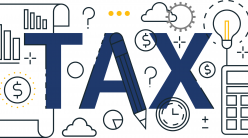(According to Article 4 of Circular 96/2015/TT-BTC dated June 22, 2015 effective from August 6, 2015)
- Except for non-deductible expenses mentioned in Clause 2 of this Article, enterprises may deduct all expenses if they fully satisfy the following conditions:
- a) Actual expenses incurred in connection with production and business activities of the enterprise.
- b) The expenditure has enough lawful invoices and documents as prescribed by law.
- c) Expenditures, if there is an invoice for purchase of goods and services each time with a value of 20 million VND or more (price includes VAT) upon payment must have a non-cash payment voucher.
Meaning: Enterprises may deduct all expenses if: The expenses incurred are related to production and business activities and have legal invoices and documents.
———————————————————————
Non-cash payment vouchers comply with the provisions of legal documents on value added tax.
– If the purchase of goods and services each time is worth more than 20 million, but by the time of cost recognition, the enterprise has not yet paid, it will be included in deductible expenses when determining taxable income.
- If there is no non-cash payment voucher at the time of payment, it is required to declare and reduce expenses for the value of goods and services without non-cash payment documents in the tax period incurred. the payment in cash (even in cases where tax authorities and functional agencies have decided to inspect and examine the tax period where this expense is incurred).
– For goods and service purchase invoices that have been paid in cash, arising before the effective date of Circular No. 78/2014/TT-BTC, they are not required to be adjusted according to the provisions of this Point. .”
For example: In August 2018, DHP Law Company Limited has an input invoice of 30 million but has not yet paid. In 2019, the Company included deductible expenses when determining taxable income. In 2019, the company made payment in cash. Therefore, the company must declare and reduce such expenses in the tax period in which the payment is made in cash (tax period 2019).
– If an enterprise purchases goods and services related to its production and business activities and has an invoice printed directly from the cash register in accordance with the law on invoices, the details are as follows:
- If this invoice has a value of > 20 million, the enterprise shall base it on this invoice and non-cash payment vouchers to calculate deductible expenses when determining taxable income.
- If this invoice is valued at < 20 million dong and has been paid in cash, the enterprise shall base it on this invoice and cash payment documents to calculate deductible expenses when determining taxable income.
———————————————————————
- Expenses that are not deductible when determining taxable income include:
2.1 Expenses that do not satisfy the conditions specified in Clause 1 above:
– In case the enterprise has expenses related to the value of losses due to natural disasters, epidemics, fires and other force majeure events that are not compensated, this expense shall be included in deductible expenses when determining revenue. Specific taxable imports are as follows:
- Enterprises must clearly determine the total loss value and must have supporting documents.
– Goods damaged due to expiry date, damaged due to changes in the natural biochemical process without compensation, shall be included in deductible expenses when determining taxable income. (Enterprises must make documents to prove).
(Details of documents to prove you can see in Clause 2, Article 4 of Circular 96/2015/TT-BTC)
2.2 Depreciation of fixed assets in one of the following cases:
- a) Depreciation expenses for fixed assets not used for production and trading of goods and services.
– Particularly fixed assets serving employees working at enterprises installed in: motels between shifts, cafeterias between shifts, changing houses, toilets, rooms or medical stations for medical examination and treatment, training establishments , vocational training and equipment, furniture; clean water tanks, garages, employee shuttles, and houses directly for employees are depreciated and included in deductible expenses when determining taxable income.
According to Clause 2.2, Article 4 of Circular 96/2015/TT-BTC, effective from August 6, 2015.
– Supplementing the fixed assets of the enterprise to serve the employees and to organize vocational education activities, which are included in the deductible expenses when calculating CIT, including: libraries, kindergartens, sports areas and equipments. , furniture is eligible to be fixed assets installed in works serving employees working at enterprises; physical foundations, machines and equipment are fixed assets used to organize vocational education activities.
- b) Depreciation expenses for fixed assets without papers proving their ownership, not being managed, monitored and recorded in the accounting books of the enterprise (except for finance lease-purchase fixed assets).
- c) Depreciation in excess of the prescribed level.
– Enterprises must register the method of depreciation of fixed assets with tax authorities before depreciating.
– Enterprises operating with high economic efficiency may depreciate quickly but not more than twice the depreciation rate determined by the straight-line method.
– For assets being tools, tools, circulating packaging, etc., which do not satisfy the conditions for determination as fixed assets, they shall be gradually allocated to production and business expenses in the period but not exceeding 3 years.
- d) Depreciation is equal to the original cost in excess of 1.6 billion VND/vehicle for passenger cars with 9 seats or less (except for automobiles specializing in passenger transport, tourism and hotel business). , cars used for modeling and test driving for the auto business).
– Passenger cars with 9 seats or less specializing in passenger transport, tourism and hotel business are cars registered with the name of the enterprise that this enterprise is in the Certificate of Business Registration or Certificate of Registration. registered business in one of the following lines: passenger transport, tourism, hotel business and is licensed to do business.
– In case the enterprise transfers or liquidates a passenger car with 9 seats or less, the residual value of the vehicle is determined by the actual cost of the purchase of the fixed asset minus (-) the accumulated depreciation of the vehicle. fixed assets according to the regime of management, use and depreciation of fixed assets up to the time of vehicle transfer or liquidation.
For example: Enterprise A buys a car with less than 9 seats with the original cost of VND 6 billion, the company depreciates it for 1 year and then liquidates it. Depreciation amount according to the regime of management, use and depreciation of fixed assets is 1 billion VND (the depreciation period is 6 years according to the document on depreciation of fixed assets). The amount of depreciation according to tax policy included in deductible expenses is 1.6 billion dong/6 years = 267 million dong. Enterprise A liquidates and sells cars for 5 billion VND.
Income from vehicle liquidation: 5 billion VND – (6 billion VND – 1 billion VND) = 0 VND”
(According to Article 1 of Circular 151/2014/TT-BTC)
- e) Depreciation for fixed assets which have been fully depreciated.
- g) Depreciation for works on land that is used for production and business and used for other purposes shall not be included in the deductible expenses for the value of the works on the land corresponding to the non-existent area. used in production and business activities.
2.3 Expenses for raw materials, materials, fuel, energy and goods in excess of the reasonable consumption level.
– Enterprises themselves build and manage consumption norms of raw materials, materials, fuel, energy and goods used in production and business. This norm is built at the beginning of the year or at the beginning of the production period and kept at the enterprise.
Note: According to Clause 2.3, Article 4 of Circular 96/2015/TT-BTC, effective from August 6, 2015.
– Abolish the regulation that enterprises self-build and manage consumption norms of raw materials, materials, fuel, energy, and goods used in production and business as a basis for determining the cost of raw materials, materials and fuels. Raw materials, energy and goods in excess of the reasonable consumption level are not included in deductible expenses.
– For expenses in excess of the consumption norm for some raw materials, materials, fuel, energy and goods which have been promulgated by the State, will not be included in deductible expenses when determining income. taxable.
Note: According to Clause 2.5, Article 4 of Circular 96/2015/TT-BTC, effective from August 6, 2015.
Regarding personal property rental payments:
– Adding regulations that do not include deductible expenses when calculating tax on property rental payments of individuals without complete dossiers and documents as follows:
– If the enterprise leases the property of an individual, the documents to determine the deductible expenses are the property lease contract and the document of rental payment.
– If the enterprise leases the property of an individual, but in the property lease contract there is an agreement that the enterprise shall pay tax on behalf of the individual, the dossier to determine the deductible expenses is the property lease contract, the document on the rental payment. property and tax payment documents on behalf of individuals.
– If the enterprise leases the property of an individual but the property lease contract has an agreement that the rent does not include tax (value-added tax, personal income tax) and the enterprise pays tax on behalf of the individual, Enterprises are included in the deductible expenses the total amount of property rent including tax paid on behalf of individuals.
2.4 Expenses of enterprises purchasing goods and services (without invoices, they are allowed to make a list of purchased goods and services using form No. 01/TNDN attached to Circular 78) but do not make an attached list. payment vouchers for sellers or service providers in the following cases:
– Purchase of agricultural, marine and aquatic products from producers or catchers for direct sale;
– Buy handicrafts made of jute, sedge, bamboo, leaves, rattan, straw, coconut shells, coconut skulls or other raw materials using agricultural products from craft producers who do not trade directly. sold out;
– Buy land, stone, sand and gravel from households and individuals, directly exploiting and selling;
– Buying scrap from people who directly collect;
– Buy supplies, assets and services from households and individuals that are not directly sold by non-businesses;
– Purchase of goods and services of business households and individuals (excluding the cases mentioned above) with a turnover below the value-added taxable turnover (VND 100 million/year).
=> The list of goods and services purchase and sale signed by the legal representative or authorized person of the enterprise and take responsibility before law for the accuracy and truthfulness. Enterprises purchasing goods and services that are allowed to make a list of deductible expenses mentioned above are not required to have non-cash payment vouchers.
2.5. Paying salaries, wages and bonuses to employees in one of the following cases:
- a) Payments of wages and bonuses but without payment documents
- b) Wages and bonuses for employees are not specified in terms of eligibility and enjoyment level in one of the following documents: Labor contract; Collective labor agreement; Financial regulations of the Company, Corporation, Group; The bonus regulations are prescribed by the Chairman of the Board of Directors, the General Director, the Director according to the financial regulations of the Company and the Corporation.
- c) Paying salaries, wages and other allowances payable to employees but the time limit for submission of tax finalization dossiers has not yet been paid, except for cases where the enterprise has set up a reserve fund to add to the fund. salary of the following year. The annual provision level is decided by the enterprise but must not exceed 17% of the salary fund.
- d) Salaries and wages of owners of private enterprises, owners of single-member limited liability companies (owned by an individual); remuneration paid to the founders, members of the Members’ Council, the Board of Directors who are not directly involved in production and business management.
2.6. Expenses for clothing in kind for employees without invoices and vouchers; the expenditure on clothing in cash and in kind for employees exceeds 05 (five) million VND/person/year.
Note : According to Clause 2.7, Article 4 of Circular 96/2015/TT-BTC, effective from August 6, 2015.
Regulations on cost of costumes:
– If spending in kind will be included in the entire cost. (If there are invoices, vouchers)
– If spending in cash, it must not exceed 05 million VND/person/year.
– If spending on costumes both in cash and in kind: The maximum expenditure for money spending does not exceed 05 (five) million VND/person/year. In kind, invoices and vouchers must be provided.
2.7. Payment of rewards for initiatives and improvements that enterprises do not have specific regulations on the payment of rewards for initiatives and improvements, and without a council for acceptance of initiatives and improvements.
2.8. Expenses for transportation allowances on vacation are not in accordance with the provisions of the Labor Code.
– Allowances for employees on business trips, travel expenses and accommodation rents for employees on business trips, if there are sufficient invoices and documents, will be included in deductible expenses when determining bearable income. tax. In case the enterprise has contracted travel, accommodation and allowances for employees to go on business trips and strictly comply with the financial regulations or internal regulations of the enterprise, it shall be included in the deductible expenses. travel, accommodation, allowances.
In case the enterprise sends workers on business trips (including domestic and foreign missions), if there is an expense of 20 million VND or more, the cost of buying air tickets that these expenses are paid for. payment by an individual’s bank card is eligible as a form of non-cash payment and is included in deductible expenses if the following conditions are satisfied:
Having appropriate invoices and documents delivered by the goods or service provider.
– The enterprise has a decision or document to send employees on a business trip.
– Financial regulations or internal regulations of the enterprise allow employees to pay travel expenses, buy airline tickets with a bank card owned by the individual, and this payment is then paid by the enterprise. pay back to employees.
In case an enterprise buys air tickets through an e-commerce website for employees to go on a business trip to serve its business and production activities, the voucher used as the basis for calculating deductible expenses is the air ticket. electronic flights, boarding passes and non-cash payment vouchers of businesses with individuals participating in the transportation journey. In case the enterprise fails to recover the employee’s boarding pass, the documents used as the basis for calculating the deductible expenses are the electronic air ticket, the decision or document on sending the employee on a business trip, and the certificate. from non-cash payment of businesses with individuals participating in the transportation journey.
2.9. Expenditures are deducted as follows but if the expenditure is not for the right object, for the wrong purpose or the expenditure is in excess of regulations.
- a) Additional expenses for female employees are included in deductible expenses.
- b) Additional expenses for ethnic minorities included in deductible expenses include: school fees (if any) plus the difference in salary and grade level (100% salary guaranteed for learners); support money for housing, social insurance and health insurance for ethnic minorities in case they have not been supported by the State according to the prescribed regime.
2.10. The deduction for payment of compulsory insurance funds for employees in excess of the prescribed limit; the deduction and payment of union dues for employees in excess of the prescribed limit.
Note: Social insurance contribution rate: The lowest must be equal to the regional minimum salary (by region), the highest is 20 times the general minimum salary (= 20 x 1,150,000 = 23,000,000) (According to the Law on Social Insurance No. 71/2006) /QH11. If premium payment is higher than 20 times, this cost will be eliminated.
– The deduction for payment of union dues for employees, if it exceeds 2%, will be disqualified.
2.11. Spending in excess of 1 million VND/month/person for : Deduction for voluntary retirement fund, fund of social security nature, purchase of voluntary retirement insurance, life insurance for employees.
Note: According to Clause 2.6, Article 4 of Circular 96/2015/TT-BTC, effective from August 6, 2015.
– Remove the limit of 1 million/month/person for the cost of buying life insurance for employees. Total deduction will be made if the eligibility conditions and entitlement levels are specified in one of the following documents: Labor contract; Collective labor agreement; Financial regulations of the Company, Corporation, Group; The bonus regulations are prescribed by the Chairman of the Board of Directors, the General Director, the Director according to the financial regulations of the Company and the Corporation.
– From February 1, 2018 according to Decree 146/2017/ND-CP dated December 15, 2017:
“o) Spending in excess of VND 03 million/month/person to deduct to the voluntary retirement fund, purchase of voluntary retirement insurance, and life insurance for employees; the excess amount prescribed by law on social insurance and health insurance for the purpose of deducting and paying social security funds (social insurance, compulsory supplementary pension insurance), insurance fund health care and unemployment insurance fund for employees;
– Deductions for payment to voluntary retirement fund, social security fund, purchase of voluntary retirement insurance, and life insurance for employees are included in deductible expenses, except not exceeding the prescribed limit. In this Clause, it is also required to specify the conditions for enjoyment and the level of enjoyment in one of the following documents: Labor contract; Collective labor agreement; Financial regulations of the Company, Corporation, Group; Bonus regulations by the Chairman of the Board of Directors”
2.12. The payment of unemployment benefits to employees is not in accordance with current regulations.
2.13. Contribution expenses form a source of management costs for superiors .
2.14. The expenditure contributed to the Association’s funds (these Associations are established in accordance with the law) exceeds the limit prescribed by the Association.
2.15. Payment of electricity and water bills for electricity and water contracts signed by the owner being a household or individual leasing a production or business location directly with the electricity and water supply unit without sufficient documents .
– Thus : If your business rents an office… but the electricity and water bill is in the landlord’s name, it will not be recorded in reasonable expenses if you do not make a list of 02/TNDN.
Note : According to Clause 2.15, Article 4 of Circular 96/2015/TT-BTC, effective from August 6, 2015.
– Abolish the regulation that enterprises must make a list of payment for electricity and water bills according to form No. 02/TNDN issued together with Circular No. 78/2014/TT-BTC.
Specifically: Payment of electricity and water bills for electricity and water contracts signed by the owner being a household or individual leasing production and business locations directly with the electricity and water supply unit without electricity and water. sufficient documents in one of the following cases:
- a) If the enterprise rents a business location to directly pay electricity and water bills to the electricity and water supplier, there are no bills to pay electricity and water bills and the lease contract for the production and business location.
-> Thus: If you pay directly with the supplier, you need: Location rental contract and payment invoice.
- b) If the enterprise renting the place of production and business pays electricity and water bills to the owner who leases the production and business location, there is no proof of payment for electricity and water bills to the lessor of the production and business location in accordance with the provisions of law. quantity of electricity and water actually consumed and contract for lease of production and business locations.”
Thus: If paying with the landlord, it is necessary: Proof of payment of electricity and water bills with the landlord (in accordance with the amount of electricity and water consumed) and a rental contract.
2.16. The portion of fixed asset lease expenses that exceed the amortization rate for the number of years that the lessee pays in advance.
2.17. The portion of interest payments on loans for production and business loans of subjects who are not credit institutions or economic organizations exceeds 150% of the basic interest rate announced by the State Bank of Vietnam at the time of borrowing.
2.18. Payment of interest on loan in proportion to the missing registered charter capital (in the case of a private enterprise as investment capital) according to the capital contribution schedule stated in the enterprise’s charter, even if the enterprise has gone into production and business. Interest payments on loans have been recognized in the value of assets and investment works.
For example: On the DKDK license, the charter capital is 2 billion, but in reality, only 1 billion has been contributed, so it is 200 million short.
– Your company borrows 500 million. So your company is only included in the reasonable cost of the loan interest (500 million – 200 million) = 300 million. The interest expense of 200 million is not included in the expense when calculating CIT.
Note: According to Clause 2.18, Article 4 of Circular 96/2015/TT-BTC, effective from August 6, 2015.
Regulations on payment of loan interest corresponding to the missing registered charter capital according to the capital contribution schedule stated in the charter of the enterprise.
– If the enterprise has contributed enough charter capital, in the course of business, there is a payment of loan interest to invest in other enterprises, this expense shall be included in deductible expenses when determining taxable income.
– If the charter capital has not been fully contributed according to the capital contribution schedule stated in the enterprise’s charter, taxable income shall not be deducted when determining taxable income, which is determined as follows:
- If the loan amount is less than or equal to the missing charter capital, the entire loan interest is a non-deductible expense.
Example: Charter capital is 2 billion. But only contributed 1 million 5. And borrow 500 million, the entire interest expense is not deducted.
- If the loan amount is larger than the outstanding charter capital according to the capital contribution schedule:
+ If the enterprise has many loans, the loan interest payment shall not be deducted by the ratio (%) between the outstanding charter capital and the total loan amount multiplied by (x) the total loan interest.
+ If the enterprise has only one loan, the non-deducted interest payment is equal to the outstanding charter capital multiplied by (x) the loan’s interest rate multiplied by (x) the period of insufficient charter capital contribution.
2.19. Deducting, making and using provisions not in accordance with the guidance of the Ministry of Finance on setting up provisions: provision for devaluation of inventories, provision for loss of financial investments, provision for doubtful debts Claims, provision for warranties of products, goods, construction works and provision for professional risks of valuation enterprises and independent audit service providers.
2.20. Expenses that are accrued by term, by cycle, but by the end of the term, by the end of the cycle, have not been spent or are not fully paid.
– Advances include: deductions for major repair of fixed assets according to the cycle, deductions for activities for which revenue has been calculated but still have to perform contractual obligations (including school fees). in case the enterprise has engaged in asset leasing and service business activities for many years but has collected money in advance from customers and has included all in the revenue of the year of collection) and other accruals.
2.21. Expenses exceeding 15% of total deductible expenses , including: advertising, marketing, promotion, brokerage commissions; expenses for receptions, celebrations, conferences; marketing support expenses, expense support expenses; paying for, giving or giving away goods and services to customers.
– Total deductible expenses do not include the control expenses specified at this point; for commercial activities, the total deductible expenses do not include the purchase price of sold goods. For imported goods, the purchase price of sold goods includes import tax, excise tax, and environmental protection tax (if any). For specific business activities such as lottery, prize-winning electronic games, bets, casino, the total deductible expenses do not include prize payment expenses.
The above controlled advertising, marketing, promotion and brokerage commissions do not include:
– Insurance commission according to the provisions of the law on insurance business; Commissions paid to agents selling goods and services at the right price.
– Commissions paid to distributors of multi-level marketing enterprises. For organizations that receive commissions, they must declare and calculate them into taxable income, for individuals who receive commissions, they must withhold personal income tax before paying income.
– Expenses incurred domestically or abroad (if any) such as: Market research expenses: exploration, survey, interview, collection, analysis and evaluation of information; development costs and market research support; expenses for hiring consultants to conduct research, development and market research support; Expenses for displaying and introducing products and organizing trade fairs and exhibitions: expenses for opening rooms or booths to display and introduce products; the cost of renting space to display and introduce products; cost of materials, tools to support the display and introduction of products; Shipping costs for products displayed and introduced.
But from January 1, 2015, the following expenses: Advertising, marketing, promotion, brokerage commissions, receptions, celebrations, conferences, marketing support, and directly related expenses to production and business activities WILL NOT be controlled by 15% anymore. which is fully deducted.
(According to Law No. 71/2014/QH1 – Law amending and supplementing a number of articles of laws on Taxation)
2.22. Loss on exchange rate differences due to revaluation of monetary items denominated in foreign currencies at the end of the tax period, including exchange rate differences due to revaluation of year-end balance, are: cash, deposits, cash in progress. transfers, receivables denominated in foreign currencies (except for losses on exchange rate differences due to revaluation of foreign currency liabilities at the end of the tax period).
2.23. Expenditures on funding for education that are not for the subjects specified in Item a of this Point or have no documents to identify the funding mentioned in Item b below:
- a) Funding for education includes: funding for public, people-founded and private schools in the national education system in accordance with the law on education, which is not a capital contribution. , buy shares in schools; Funding facilities for teaching, learning and school activities; Sponsor regular school activities; Sponsor scholarships for pupils and students of general education institutions, vocational education institutions and higher education institutions as prescribed in the Law on Education (direct funding for pupils and students). or through educational institutions, through agencies and organizations that have the function of mobilizing funding as prescribed by law); Sponsoring contests on subjects taught in schools where the participants are learners; funding to establish education promotion funds in accordance with the law on education and training.
- b) Dossier to determine the funding for education includes: A written certification of the grant signed by the representative of the business establishment being the sponsor, the representative of the legal educational institution being the receiving unit. sponsors, students, students (or agencies and organizations with the function of mobilizing funding) receive grants (using form No. 03/TNDN issued together with this Circular); accompanied by invoices, proof of purchase (if sponsored in kind) or vouchers for payment (if sponsored in cash).
Note: According to Clause 2.22 Article 4 of Circular 96/2015/TT-BTC effective from August 6, 2015.
– Supplementing guidance on funding for education, including funding for vocational education activities, if it is not for the specified subjects or there is no record to determine the funding, it is not included in the deductible expenses. when calculating CIT.
2.24. Health care funding is not for the subjects specified in Item a of this point or there is no record to identify the funding.
2.25. Funding for disaster recovery is not for the subjects specified in Item a of this Point or there is no dossier to identify the funding.
2.26. Expenditure to finance the construction of houses of gratitude for the poor not to the subjects specified in Item a of this Point; funding for the construction of houses of gratitude for the poor, expenditures for building houses of great solidarity according to the provisions of law, there are no records to identify the funding mentioned in Item b below:
2.27. Spending on scientific research funding in contravention of regulations; funding not according to the State’s program for localities in areas with extremely difficult socio-economic conditions.
2.28. The portion of business administration expenses allocated by the overseas company to the permanent establishment in Vietnam in excess of the expenses calculated according to the following formula:
| Business administration expenses allocated by the overseas company to the permanent establishment in Vietnam in the tax period | = | Taxable turnover of a permanent establishment in Vietnam in the tax period | X | Total business management expenses of the overseas company in the tax period |
Total turnover of the company abroad, including the turnover of permanent establishments in other countries during the tax period
– Business management expenses of foreign companies allocated to permanent establishments in Vietnam shall be calculated only from the time the permanent establishment in Vietnam is established.
2.29. Expenses to be covered by other funding sources ; Expenditures already spent from the enterprise’s science and technology development fund; The cost of buying golf membership cards, golfing expenses.
2.30. The part of expenses related to hiring managers for prize-winning video games and casino business exceeds 4% of revenue from prize-winning video games and casino business.
2.31. Expenses that do not correspond to taxable revenue , EXCEPT the following:
Note : According to Clause 2,230, Article 4 of Circular 96/2015/TT-BTC, effective from August 6, 2015.
– Actual expenses for HIV/AIDS prevention and control activities at enterprises’ workplaces, including: Expenses for training HIV/AIDS prevention and control staff of the enterprise, expenses for organizing communication on HIV prevention and control. /AIDS for employees of enterprises, fees for HIV counseling, examination and testing, expenses for supporting HIV-infected people who are employees of enterprises.
– Actual expenditures for performing the tasks of national defense and security education, training and activities of the militia and self-defense forces and serving other defense and security tasks in accordance with relevant laws. .
– Amounts actually spent to support Party organizations, socio-political organizations in enterprises.
– Expenses for vocational education and training activities for employees include:
– Expenses for teachers, learning materials, equipment used for vocational education activities, practice materials, other expenses to support learners.
– Training costs of the enterprise for employees recruited to work at the enterprise
– Expenses of welfare nature are spent directly on employees such as: expenses for filial piety and joy of themselves and the employee’s family; expenses for vacation, expenses for treatment support; expenditures on additional support for learning knowledge at training institutions; expenses to support the families of employees affected by natural disasters, enemy sabotage, accidents, illness; spending on rewarding children of employees with good academic achievements; expenses to support travel expenses on holidays and Tet for employees; expenses for accident insurance, health insurance, and other voluntary insurance for employees (except for expenses for purchasing life insurance for employees as guided at Point 2.6, voluntary retirement insurance for employees with orientations to referred to at point 2.11 of this Article) and other welfare payments.
-> The total amount of welfare expenditure mentioned above must not exceed 01 month’s average salary actually made in the tax year of the enterprise.
– The determination of the actual average monthly salary in the tax year of the enterprise is determined by the salary fund made in the year divided (:) by 12 months.
– If the enterprise has operated for less than 12 months, then: The determination of the actual average monthly salary in the tax year is determined by the salary fund made in the year divided by (:) the number of actual months of operation in the year. .
– Realized salary fund is the total actually paid salary of that settlement year by the deadline for submitting the final settlement dossier as prescribed (excluding the amount of money set aside for the salary reserve fund of the previous year). expenditure in the year of tax settlement).
2.32. Spending on capital construction investment during the investment period to form fixed assets.
2.33. Spending on local support ; expenditures to support mass organizations and social organizations; charity expenditures (except for funding for education, health care, disaster recovery, building houses of gratitude for the poor, building houses of great solidarity; funding scientific research, sponsoring programs under the program). of the State for localities in areas with extremely difficult socio-economic conditions mentioned at Points 2.23, 2.24, 2.25, 2.26, 2.27, Clause 2 of this Article).
2.34. Expenses directly related to the issuance of shares (except for shares of the type of liability) and dividends of shares (except for dividends of shares of the type of liability), purchase and sale of treasury shares and other cash payments. Other expenses directly related to the increase or decrease in the owner’s equity of the enterprise.
2.35. Expenses for insurance business, lottery business, securities business and a number of other specific business activities do not comply with separate guiding documents of the Ministry of Finance.
2.36. Fines for administrative violations include : violation of traffic laws, violations of business registration regimes, violations of statistical accounting regimes, violations of tax laws, including interest on late tax payment according to regulations. provisions of the Law on Tax Administration and fines for other administrative violations as prescribed by law.
2.37. Input VAT has been deducted or refunded ; input value-added tax of fixed assets being automobiles with 9 seats or less in excess of the deductible prescribed in legal documents on value-added tax; corporate income tax, except for cases where enterprises pay corporate income tax on behalf of foreign contractors, which according to agreements in contracts of foreign contractors and sub-contractors, revenue from foreign contractors and sub-contractors receive excluding corporate income tax; personal income tax unless the enterprise signs a labor contract stipulating that the salary and remuneration paid to the employee does not include personal income tax.
More details can be found in Article 4 of Circular 96/2015/TT-BTC









